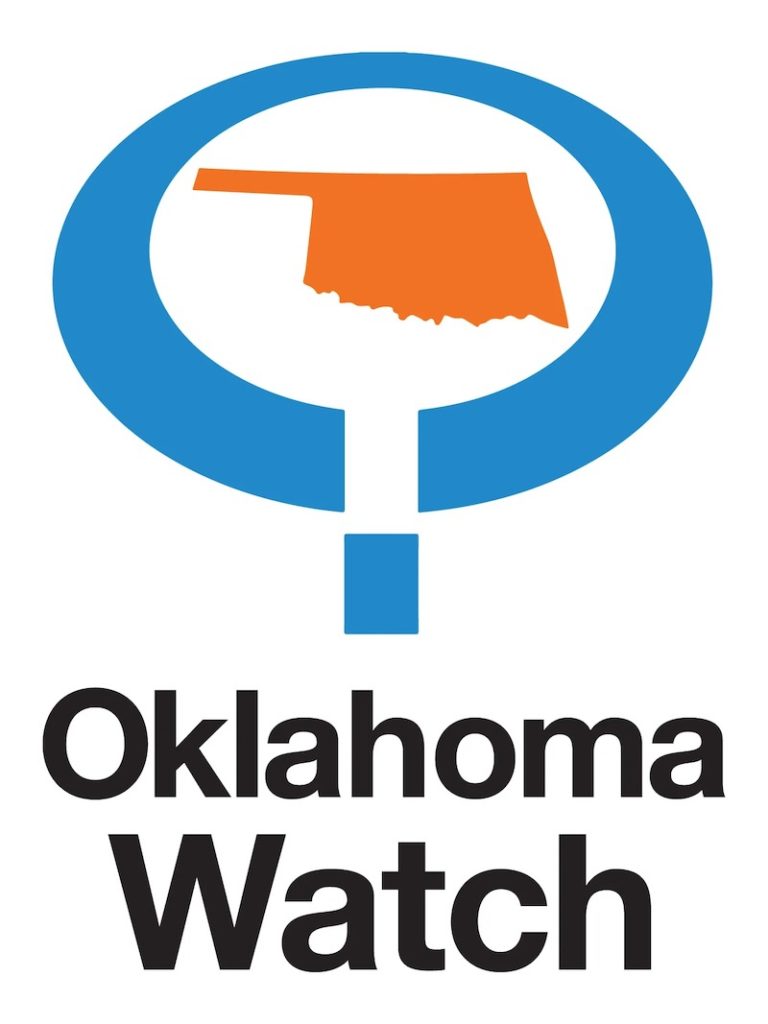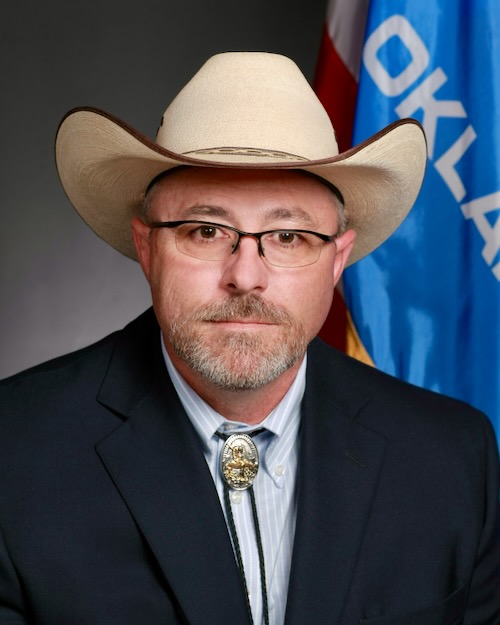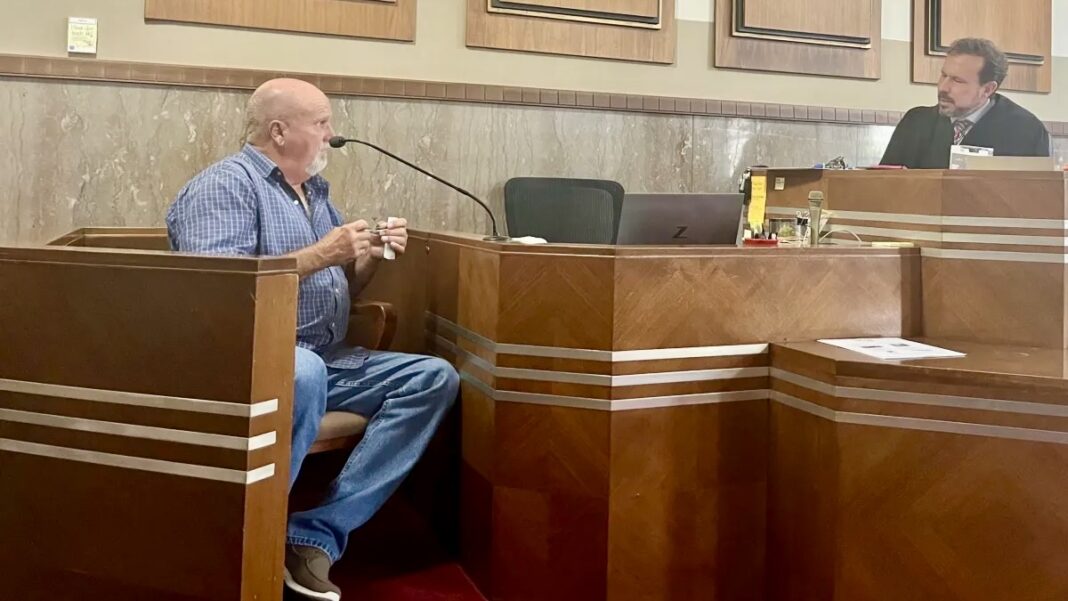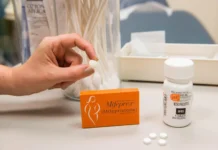Last Updated on August 6, 2023, 9:31 PM | Published: August 3, 2022
OKLAHOMA CITY (Free Press) — Oklahoma voters sent a message in 2016: Stop sending people to prison on minor drug and property crimes. Direct money saved to counties for drug and mental health treatment.
State lawmakers still haven’t gotten the second half of that.
Nearly seven years later, not a dime has been invested in the County Community Safety Investment Fund, established by passage of State Question 781 to cover the costs of treatment in all 77 counties.
That’s where the burden shifted when voters approved State Question 780, reclassifying many drug-related felonies and sending offenders to county jails rather than state prisons.
Instead, legislators have been appropriating funds into a separate diversion program managed by state agencies.

“Rather than appropriate dollars to this fund, they’ve appropriated directly to individual agencies or programs that are — I think the word they used was ‘in the spirit of the State Question 780’ — related back to mental health and things like that,” said Caden Cleveland, a spokesman for the state Office of Management and Enterprise Services.
When 58% of voters supported reclassifying low-level offenses and 56% voted to channel the saving to counties for treatment, they weren’t casting ballots for the spirit of the law, said Damion Shade, executive director of Oklahomans For Criminal Justice Reform.
“It is entirely true to say that they have invested in some diversion programs,” Shade said. “The diversion programs that they have invested in are not the diversion programs and not the resources that voters demanded. It’s not.
“That’s just a material fact. When they say they’re fulfilling the spirit of the law, that means that they are not fulfilling the letter of the law.”
‘Zero Dollars’
One such diversion program is Smart on Crime, which was intended to reduce the incarceration cost on the state by getting people into treatment programs. There’s an important distinction: While addressing problems of mental health and substance abuse in state prisons, Smart on Crime doesn’t allot funds specifically for counties.

Gov. Kevin Stitt’s first budget proposed that the legislature put $10 million into the fund in 2020. State lawmakers never appropriated it. Stitt administration spokesperson Carly Atchison declined Oklahoma Watch requests.
A state financial report on County Community Safety Investment Fund couldn’t be generated by the state Office of Management and Enterprise Services, Cleveland said. He said if he pulled the report it would say “zero dollars.”
It took nearly five years for the Legislature to work with criminal justice advocates and the state Department of Corrections and agree on how to calculate the savings from voter-approved sentencing changes. State Rep. Justin Humphrey, chairman of the House committee on criminal justice and corrections, said the unclear language of State Question 780 contributed to the delay.
“It had no expectations of what’s going to happen to all these people,” said Humphrey, R-Lane.
Yet, Shade said the state question was clear in its intent that all 77 counties could have funding for mental health courts, drug courts and sentencing diversion programs.
“We don’t want people struggling with addiction behind bars,” Shade said. “We want them with doctors getting treatment and getting better to whatever extent that is possible.”
The Need in Counties
Rural county drug court administrators said they need funds set forth in State Question 781. Noel Bagwell, executive director of the Payne County Drug Court, said the funds would further existing treatment services such as drug testing.
Even in Oklahoma County — with a drug court graduation rate over 80% — staffing levels are dangerously low and funding is lacking for housing assistance, indigent drug testing and transportation, said Oklahoma County Drug Court Judge Kenneth Stoner.
“People have to go to treatment. They have to come to court. They have to come down to take a drug test. And so we have to buy lots of bus passes,” Stoner said. “And frankly, we don’t really get funding for bus passes. We just have to try to figure out how to help people.”
Said Bagwell, “At the end of the day, we’ve got to be sure that we’ve done everything possible for our clientele. Funding would make that more possible.”
Stalled in Senate
Robert Hicks graduated from Oklahoma County Drug Court in July. He had been trapped in a cycle of addiction since age 14 and he’s been incarcerated several times. Now approaching 60, Hicks said his life changed in 2020 after police pulled him over while he was driving under the influence of pills.

“I had my grandson in the car with me when I got pulled over, and they put a child endangerment charge on me,” Hicks said. “And I thought about what could have happened to him … it just made me see what I had been doing and how many chances I took and how many times I had gotten away with it. That was really the final straw, and I couldn’t do this anymore.”
Among the 36 bills Humphrey authored during the 2022 legislative session is one that would force legislators to appropriate funds to the County Community Safety Investment Fund. The bill passed the House unanimously and was never heard in the Senate.
Yet after authoring House Bill 3294, Humphreys said he was surprised to learn that some money has been set aside. He is hosting an interim study this fall in hopes of learning more.
“The hope is that we quit talking, and we actually develop a bill … so I would say creating real legislation that results in real action to change our entire criminal justice system and begin to work on community corrections, progressive discipline, real data, and real accountability with actions toward criminal behaviors and substance abuse behavior,” Humphrey said.
Published in partnership with Oklahoma Watch under Creative Commons license. Free Press publishes this report as a collaborative effort to provide the best coverage of state issues that affect our readers.
Feature photo caption: Robert Hicks of Luther, left, tells Oklahoma County Drug Court Judge Kenneth Stoner how he was able to get sober and graduate from drug court on July 21, 2022. Oklahoma voters passed two state questions in 2016 aimed at providing greater opportunity for recovery in all 77 counties for those suffering from addiction and mental illness. (Ashlynd Huffman/Oklahoma Watch)
Ashlynd Huffman is an investigative reporter for The Frontier. Contact her at [email protected] and 405-240-6359. Follow her at @AshlyndHuffman.











